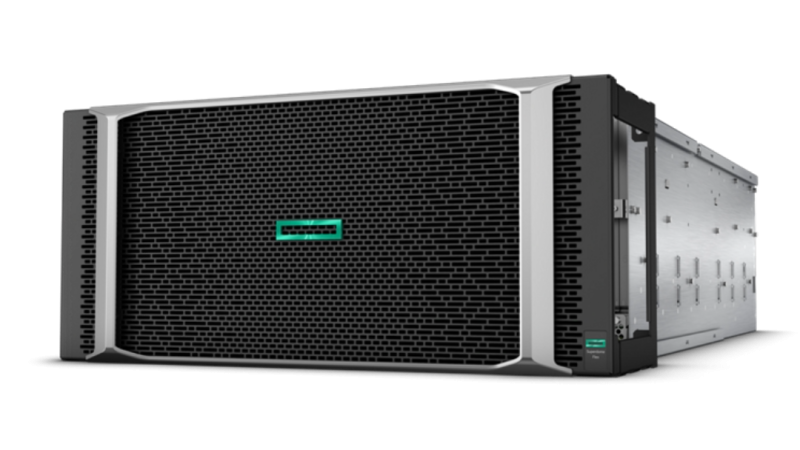
In the rapidly evolving digital era, servers have become more than just components of an IT infrastructure; they are the backbone of modern business operations. Their role in storing, processing, and managing data makes them indispensable in today’s interconnected world. In this post, we will uncover the essence of servers, their types, and their pivotal role in enhancing business operations.
At NCS, with over 25 years of experience in IT solutions, we have witnessed first-hand the evolution and growing importance of servers across various industries. Our insights are grounded in real-world applications and tailored solutions, ensuring that the information provided is both practical and relevant to your business needs.
As we transition into a deeper exploration of servers, let’s start by defining what a server is and its fundamental role in a business network.
Definition:
A server is a powerful computer designed to process requests and deliver data to other computers over a local network or the internet. Unlike regular computers, servers are engineered to manage, store, and send data to multiple users simultaneously, making them a critical part of any business’s network infrastructure. Their ability to handle large volumes of data and multiple tasks concurrently is what makes servers indispensable in the smooth operation of modern businesses.
Table of Contents
Understanding Servers

Basics
Servers play a crucial role in any business network by performing several key functions. They store essential data, from customer information to financial records, ensuring it’s readily accessible when needed. Servers also host applications and services, such as email systems, company websites, and customer relationship management (CRM) software, allowing for centralized management and access. Additionally, they handle various requests from networked computers, making them essential for internal communication and collaboration within an organization.
Navigating Physical Vs. Cloud-Based Servers
The evolution of server technology presents two main paths: physical servers, which offer businesses direct control over their hardware and software environment, and cloud-based servers, which provide flexibility and scalability through virtual server resources hosted by third-party providers. Physical servers require significant investment in hardware and maintenance but provide unparalleled control and security. Conversely, cloud-based servers minimize upfront costs and physical infrastructure, offering easy scalability and reduced responsibility for maintenance. Both options play crucial roles in supporting business operations, with the choice often reflecting a company’s specific needs, size, and strategic direction.
Types of Servers
In modern business IT environments, several types of servers play key roles in ensuring smooth and efficient operations. Here are some of the server types that are most widely utilized ((What Is a Server, TechTarget)):
- File Servers: Central repositories for storing and managing business files, allowing networked users to easily access and share documents.
- Remote Desktop Services (RDS) Servers: Enable users to remotely access applications and desktops, facilitating flexibility and remote work capabilities.
- Print Servers: Manage and streamline the process of printing within an organization, allowing multiple users to use shared printer resources efficiently.
- Domain Controller / Active Directory Servers: Essential for managing user access and security in a network. They store user account information and enforce security policies for accessing network resources.
- Database Servers: Specifically designed to handle the storage, retrieval, and management of databases, crucial for data-driven businesses.
- Application Servers: Host and run specific business applications, centralizing access and management of critical software systems.
These servers each fulfill a distinct function, playing a pivotal role in the day-to-day operations of businesses. Understanding how they integrate and contribute to a company’s IT infrastructure is key to optimizing performance and productivity.
Importance of Servers in Business Operations

Servers are essential in modern business IT infrastructure, playing a critical role in nearly every aspect of operations. Their functionality extends far beyond mere data storage, impacting various facets of a business’s efficiency, security, and scalability. ((Server (Computer Server)))
- Facilitating Efficient Operations: Servers, especially file and application servers, streamline daily operations. They allow for centralized management of resources, making data retrieval and application usage more efficient. This centralization reduces the time and effort needed for data management and improves overall workflow.
- Enabling Remote Access and Mobility: With the increasing trend towards remote work and mobile business operations, servers like RDS (Remote Desktop Services) have become essential. They provide employees with secure and efficient access to their work environments from any location, enhancing productivity and flexibility.
- Improving Data Security and Compliance: Security-focused servers, such as Domain Controllers and Active Directory servers, play a vital role in protecting sensitive business data. They manage user access and permissions, ensuring that only authorized personnel can access critical information. This control is crucial for maintaining data security and complying with various regulatory standards.
- Optimizing Resource Management and Cost Efficiency: Print servers exemplify how specialized servers can optimize resource usage. By managing print jobs and queues, they ensure efficient use of printer resources, reducing waste and saving costs.
- Supporting Data-Driven Decision Making: Database servers are fundamental for businesses that rely on data analysis and decision-making. They provide robust and scalable solutions for storing and processing large volumes of data, enabling businesses to glean insights and make informed decisions.
- Centralizing Application Access: Application servers offer a unified platform for running and managing business applications. This centralization ensures that updates, maintenance, and troubleshooting are streamlined, reducing downtime and improving user experience.
The integration of these servers into a business’s IT infrastructure can significantly enhance operational efficiency, security, and scalability. The right server setup tailored to a company’s specific needs can transform how they operate, making them more agile and responsive in a competitive business landscape.
Choosing the Right Server
Selecting the appropriate server is vital to ensuring your business’s IT infrastructure meets your specific operational needs. Here are some of the server options, along with their functionalities and best-suited scenarios:
On-Premises Servers
On-premises servers offer businesses complete control over their IT environment, making them ideal for organizations that prioritize data security and sovereignty. By hosting their servers in-house, companies can tailor their infrastructure to meet specific operational requirements and maintain direct oversight over maintenance, security, and data management. This setup is particularly beneficial for sectors with stringent regulatory compliance needs.
Cloud-based Servers
Cloud-based servers provide flexibility and scalability, catering to businesses looking for cost-effective and efficient IT solutions. These virtual servers, hosted off-site by service providers, eliminate the need for physical hardware investments and maintenance, offering on-demand resource allocation and seamless scalability. They are perfect for organizations aiming for rapid growth or those with fluctuating computing needs.
File Servers
File servers centralize file storage, simplifying data management and accessibility. They are essential for businesses seeking a secure repository for documents and media files, enabling efficient file sharing and collaboration among employees. This server type enhances organizational efficiency by streamlining document handling processes.
Remote Desktop Servers
Remote desktop servers enable users to access their work environments from any location, providing flexibility and supporting remote work strategies. These servers are crucial for businesses that require seamless access to applications and desktops outside the office, promoting productivity and connectivity among dispersed teams.
Print Servers
Print servers manage and streamline printing processes within an organization, allowing multiple users to share printer resources efficiently. By centralizing printer management, businesses can reduce hardware costs and improve printing workflows, making this server type ideal for offices with heavy printing needs.
Domain Controller Servers
Domain Controller (DC) servers are central to managing user access and security within a network. They store user account information and enforce security policies, making them indispensable for organizations that need to secure network resources and manage user credentials efficiently. DC servers are foundational for maintaining the integrity and security of business IT infrastructures.
Database Servers
Database servers are specialized to handle the storage, retrieval, and management of databases. They are critical for data-driven businesses that rely on real-time data access and analysis. By ensuring high performance and reliability, database servers support essential operations like transaction processing, reporting, and data analytics.
Application Servers
Database servers are specialized to handle the storage, retrieval, and management of databases. They are critical for data-driven businesses that rely on real-time data access and analysis. By ensuring high performance and reliability, database servers support essential operations like transaction processing, reporting, and data analytics.
NCS Consulting
Navigating the array of server options can be daunting. Whether you’re looking to upgrade your existing server infrastructure or implement a new setup, NCS is here to guide you every step of the way. Our team of experts is committed to ensuring that your IT infrastructure supports and enhances your business operations.
Contact NCS today to start the conversation about your server needs. Let us help you build an Enterprise Network that’s robust, scalable, and tailor-made for your business’s success.
Conclusion: Empowering Your Business with the Right Server Infrastructure
In summary, servers are the foundation of any robust business IT infrastructure, offering unparalleled benefits in terms of data management, application hosting, security, and overall operational efficiency. From file servers that streamline data storage to RDS servers that enable remote access, each type plays a unique role in enhancing business processes and productivity.
Understanding the diverse functionalities of servers and choosing the right ones for your business can seem challenging. However, the right server infrastructure can transform your business operations, making them more efficient, secure, and scalable. This is where the importance of expert guidance and tailored solutions becomes evident.




